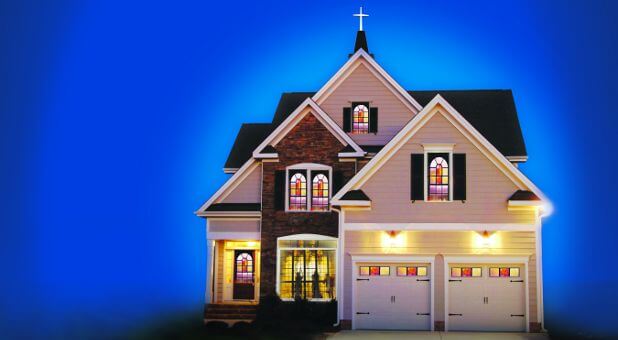Debunking the five most common myths about house churches in America
When I was growing up, parents sent their children to either public or private schools. When the homeschool movement began, advocates were reactionary to other forms of education. Eventually, the movement matured and today homeschooling is accepted across America as a viable option for educating children—as acceptable as public schools and private schools.
In the same way, house churches are a viable option for many in America. Yet some people still react negatively to this growing movement, often because they’ve swallowed what I call the five house church myths.
Myth No. 1: House churches are only made up of believers soured on “normal” church.
In the past, there was certainly some truth to this concern, but this is no longer the case. Most house leaders and advocates I meet today love the body of Christ and want to serve together to reach communities for Jesus. It’s a new day.
Myth No. 2: House church advocates don’t believe in leadership.
The church is a family, and functional families have parents. All healthy churches, including house churches, have recognized spiritual fathers and mothers who lead and care for the church family. These leaders are not spiritual CEOs but servant-leaders. From my observations, house churches that claim they don’t have leadership are either deceiving themselves or are dysfunctional. When God’s appointed leaders don’t give proper leadership, the enemy will make sure someone else leads who is not submissive to God’s instruction.
Myth No. 3: House churches don’t have sound biblical doctrine.
The potential for heresy is not only a risk to house churches, but also threatens community and megachurches—and anyone who departs from the Scriptures. A common pitfall to avoid in any type of church is spiritual pride, which produces heresy. Leaders in any type of church may fall into heresy if they are exclusive and unwilling to work with others. I find many healthy house churches are connected to either a network of house churches or a denomination and are held accountable to sound biblical doctrine.
Myth No. 4: House churches don’t believe in any organization.
A few years ago some house church advocates felt structure was anathema, but today, most see the need for godly structures. Since a functional house church is a spiritual family, all families need some type of structure. Obviously, house churches do not get bogged down with building programs and multiple staff organizational issues such as community and megachurches face.
Myth No. 5: House churches are ingrown and don’t reach their communities for Christ.
I have run the full gamut: I was a megachurch pastor, a community church pastor and in house church ministry for many years. I believe any type of church can become ingrown if we aren’t careful to focus outwardly. Healthy house churches reach beyond themselves to impact their communities for Christ and plant new churches.
House churches in America are one of the new wineskins of our generation to prepare for the coming harvest. Let’s not persecute the next move of God. We get excited about all of those coming to faith in Christ through house church ministry in China … why not America?
Larry Kreider is the international director of DOVE Christian Fellowship International and author of more than 30 books, including House to House and House Church Networks.











































